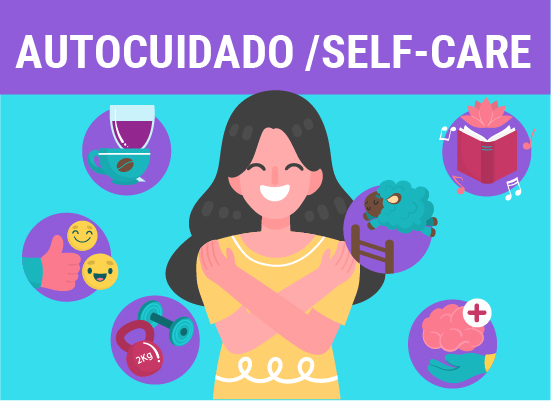
Self-care
The American School places special emphasis on promoting the social-emotional well-being of students. José María del Castillo and Iván Torres, school counselors, share valuable information on this highly relevant topic.
What is self-care?
Self-care refers to the actions and decisions, which are the result of continuous life lessons, that a person, family or group takes in order to care for their health. Said actions are aimed at improving or restoring one’s mental and physical health as well as preventing disease and include, but are not limited to, activities such as exercise, social interactions, creating and maintaining safe, healthy spaces, and striving to lead a happy life. Self-care allows us to feel balanced, healthy and in harmony even when we find ourselves in the midst of a hectic, complicated, and very busy world.
Biological benefits of exercise
Exercise:
• Improves physical endurance
- Regulates blood pressure
- Helps maintain body weight
- Improves joint flexibility
- Reduces fatigue
- Increases muscle tone and strength
- Contributes to glucose metabolization
- Oxygenates the blood
- Cleanses the skin
- Purifies the lungs
- Keeps the heart strong and healthy, among other benefits.
Psychological benefits of exercise
Exercise:
- Increases self-esteem
- Improves self-image
- Reduces social isolation
- Reduces tension and stress
- Reduces depression levels
- Leads to a relaxed state of mind
- Increases alertness
- Reduces the number of work accidents
- Reduces aggression, anger, anguish
- Increases general well-being
Mental well-being is encouraged when we …
- sleep between six and eight hours each night;
- practice meditation/mindfulness on a daily basis;
- manage our time wisely by prioritizing tasks;
- take care of our interpersonal relationships;
- listen to good music and read good books;
- talk about our concerns with friends or loved ones;
- adopt a growth mindset;